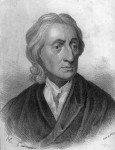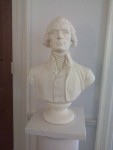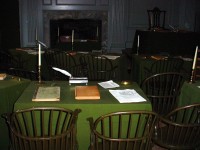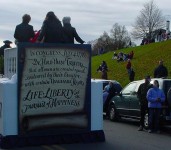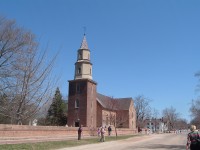RIGHTS UNDER THE KING OF KINGS

Jefferson felt that one of his life’s greatest achievements was writing the Virginia Statute for Religious Freedom, a type of forerunner to our First Amendment with its guarantee of religious freedom. What is interesting about this document is that he bases our freedom on a theological foundation. He writes: “Almighty …




